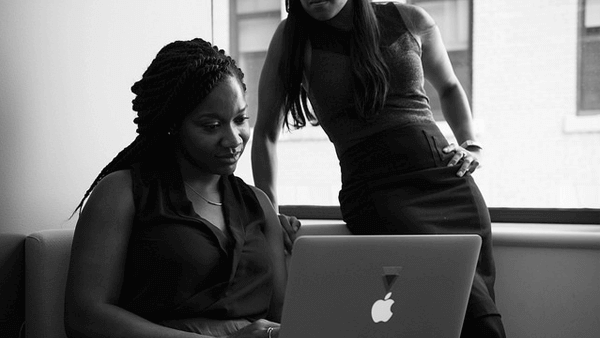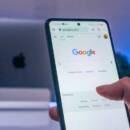There’s a ‘Blackness Gap’ in Sex Tech–Here’s How We Can Fix It
The industry must do a better job embracing diversity.

Late last year, black Twitter was on fire with jokes about Sophia the Robot and futuristic sex—
and a hostile takeover of the human race. But let’s put that aside for now.
Apart from some Twitter users saying they would be totally down for sex with Sophia, the joke seemed to revolve around the perception that it’s quite outlandish for black people to have any sort of sexual interaction with inanimate objects. The implication was that robot sex belongs to the rich white people with kinky tastes, not your average black.
I can’t help but wonder how much of black Twitter’s reaction is an aversion to new advancements in sex technology versus a lack of visual representation in these spaces and conversations. An informal poll of my progressive black friends with backgrounds in reproductive justice and sexuality affirms the perception that sex tech is not seen as available to black consumers, or at least not heavily marketed to us.
The ‘blackness gap’
I found further confirmation of my theory in a cursory Internet search of sex dolls that revealed surprisingly few with black skin tones, with perhaps one or two thrown in for good measure. The same can be said of searches for remote sex, virtual reality, body augmentation, and sex tech, all with a noticeable lack of melanin in the people shown in ads and stock photos.
One search yielded promising results with an article on Neurospeculative AfroFeminism, a virtual reality art installation by Hyphen-Labs. And while the project certainly held my interest, the emphasis on advancements in science, technology, finance and art left me curious for integration with advancements in sex tech.
Even more striking, however, was the project’s fixation on “neurocosmetology” and the description of a young black girl switching up her “adorable pigtail hair puffs” to “high-tech hair extensions” and receiving brain stimulation to boot via the so-called Octavia Electrodes. This focus on the salon as the primary forum for black women to convene and unwind strikes me as pitifully out of touch and limiting.
Consumer power

My searches make plain to me that black buyers are not prioritized, or at the very least that our representation is disregarded in these ventures. And that’s somewhat puzzling, because black people spend a lot of money. Even before the advent of the film Black Panther, black consumers have maintained the title of the largest people-of-color (POC) group in the marketplace.
Black folks also watch more TV than any other race group. Projections for black spending in the U.S. is estimated at 1.4 trillion by 2020, representing a 275% booming increase over the last 20 years. Given these stats, paying attention to black consumers just seems like it should be considered a best practice in business strategy.
Apparently, most businesses haven’t gotten that memo yet. While black folks continue to be seen as the originators of popular culture and black income power is undoubtedly on the rise, marketing and advertising plans neglect nuanced and authentic approaches to black audiences: of a reported $75 billion spent on media advertising, only $2.24 billion was focused on black consumers.
First steps to filling the ‘gap’
Inclusivity is an issue for marginalized peoples everywhere, and black bodies in sex tech proves no exception. Fortunately, we can approach the issue of diversity and inclusion in sexual advancements in similar ways as we do in other spaces:
- Hire more black people. Make sure your teams have black employees in positions to design websites, games, toys, and lead authentic marketing campaigns to the plurality of the black community.
- Focus groups with more black folks. So many companies would avoid the inevitable controversy and boycotting that follows ridiculous and offensive ads if they took this to heart. Just as we don’t all look alike, all black people don’t like the same things. Limiting the ask to one singular person for feedback on a product or service is not going to cut it.
- Make space in sex tech communities for POC and black folks to be whole humans, not niche, exotic fetish categories. This resonates with me heavily as a black woman. The few representations of black folks we see in sex tech spaces are caricatures of human beings. The trope of the big-butted, ample-bosomed black woman with full lips and chemically straightened hair is tired as hell, yet that’s what’s readily available to consumers. And the few visible black men in these searches seem to be limited to the Mandingo archetype and only when paired with white, usually blonde women. And to that end…
- Actively work with us to dismantle white fragility. Seriously, it touches every aspect of our lives, including perceptions of our sexual expressions and the ways in which we are allowed to approach sexual play. The representations out there are not only outdated and unappealing to black consumers, they actually reinforce harmful stereotypes that follow us in our daily interactions and can even influence policies that critically affect our lives.
A good start to dismantling white fragility in this way can range from simple choices such as calling out racist and misogynoiristic (misogyny directed at black women) comments in one-on-one interactions, to the more complex and far-reaching actions like educating yourself and others to learn the ways that systemic racism permeates the narratives around black sexuality. Another impactful move can be contacting retailers and companies directly to advocate for better, more inclusive products and services.
It may seem daunting, but this inclusivity work is doable and worthy of the effort. The more we band together to reject the white-dominated spaces, we create pathways for more liberated and versatile sexual experiences. And that’s a win for everyone.
Image sources: Grant Source, WoCinTech Chat
Leave a reply
You must be logged in to post a comment.

















